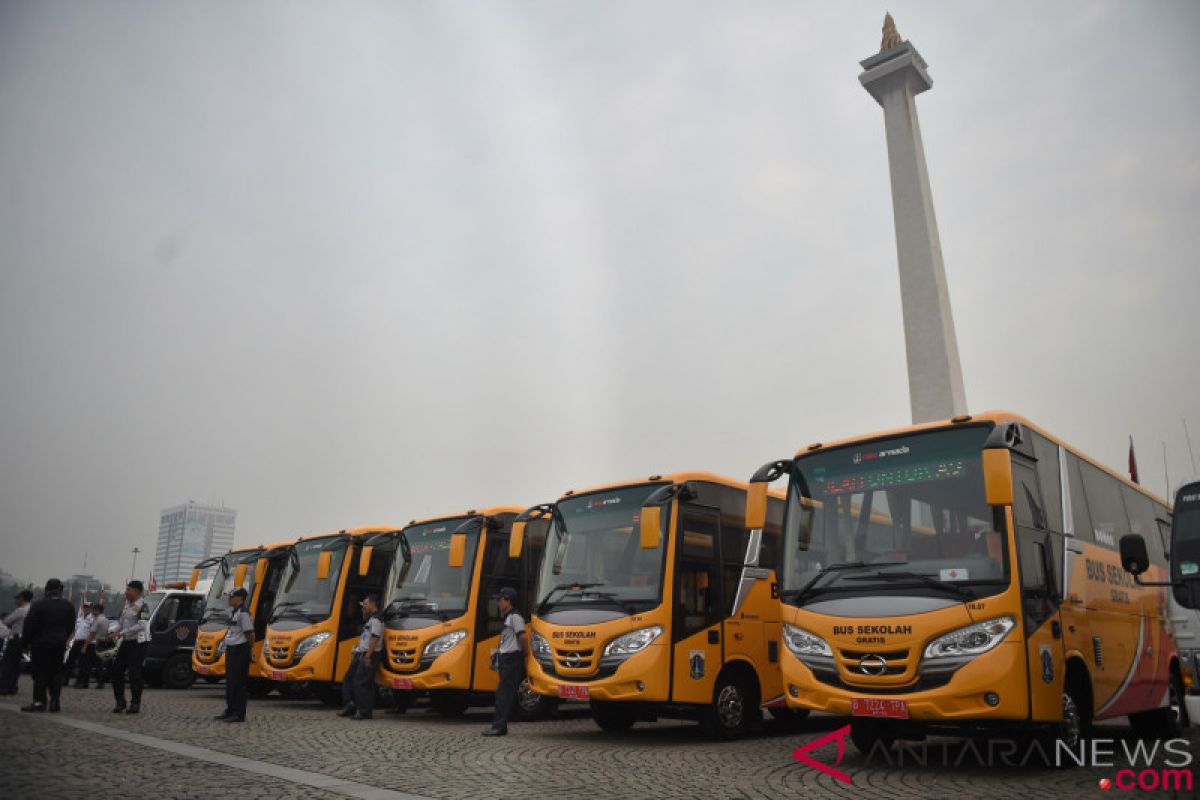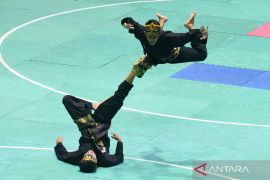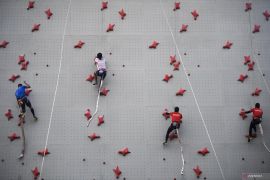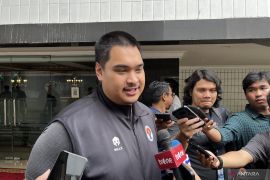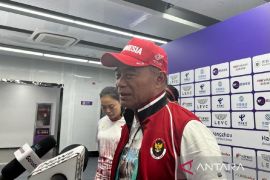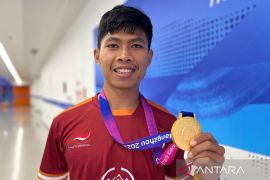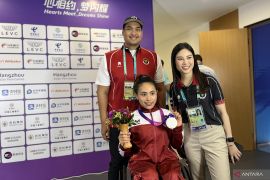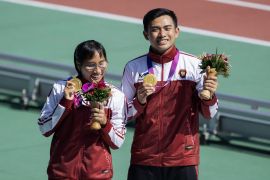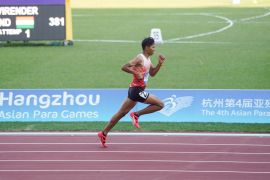Public transportation can convey many more people in much less space than individual automobiles, which helps to keep traffic congestion lower.
Besides, the public transport in turn reduces air pollution from idling vehicles and helps riders avoid the stress that comes from driving private cars in highly congested areas.
Public transport helps foster a sense of community, and thus, the Asian Games spectators traveling together to the match arena are more likely to feel a community connection than those traveling in their private cars in isolation.
Rather than driving in heavy traffic or wasting time looking for an elusive car park, public transport passengers can relax and listen to music, play computer games or read a book.
Traveling on public buses significantly diminishes the threat of car accidents that are responsible for thousands of deaths and injuries per year.
Having these advantages in mind, Indonesian National Asian Games Organizing Committee (INASGOC) Chairman Erick Thohir opined that the implementation of Asian Games is the right moment for the spectators and public to switch to public transportation.
Especially with the many services provided by PT Transjakarta during the Asian Games, Erick Thohir remarked that this is the right moment for the people and Asian Games spectators to turn to public transportation.
During the Asian Games, PT Transjakarta provides thousands of bus fleets for athletes and officials. In addition, free Transjakarta bus services are also provided for volunteers and journalists covering the Asian Games.
The use of public transportation can reduce traffic congestion and air pollution in the capital city of Jakarta effectively, and therefore, this momentum must be utilized as well as possible.
In the meantime, Transjakarta President Director Budi Kaliwono said that in addition to athletes, officials, and volunteers, his party also provides free Transjakarta bus services for people who want to watch Asian Games matches directly in the arena.
According to him, the free service is only valid on Saturdays, Sundays and holidays. Residents simply show the match ticket at the Transjakarta bus stop, later there will be special buses that will take them to the match arena.
In order to succeed in organizing the 2018 Asian Games, the Jakarta Transportation Office will provide thousands of fleets to
support the smooth running of the Asian Games athletes parade to be held on August 18, 2018.
Jakarta Transportation Office spokesman Andri Yansyah remarked here on Monday that 1,681 fleets have been prepared to guard the parade of the Asian Games athletes.
He said that of the 1,681 fleets, 306 brand new ones comprised 177 units of 250-cc motorbikes, 45 patrol cars, 44 tow trucks, 34 units of 650-cc motorcycles, four operational cars, and two 1,600-cc motorbikes.
"Some 306 new fleets were purchased to strengthen the operational guard fleet of the Asian Games athletes, both while traveling to the competition arena and returning to the Athletes` House in Kemayoran," Yansyah remarked.
Furthermore, Yansyah noted that his side had also prepared 350 Transjakarta buses to mobilize athletes and officials during the 2018 Asian Games.
People keen on watching the Asian Games matches directly at the arena can take as many as 1,700 Transjakarta buses, that will help
to transport the residents directly to the arena.
Especially on holidays and Sundays, the residents can use the buses free of charge.
For school children, the Jakarta Transportation Office will provide school buses that will take them to the arena of the competition. It has added 50 more from the existing 120 school buses.
Thus, he also expressed hope that the school buses would be able to cater to students keen on watching the Asian Games matches directly at the venues.
In addition, the Indonesian government also plans to make available hundreds of buses to facilitate smooth transportation in Jakarta during the Asian Games scheduled from Aug 18 to Sept 2, 2018.
The plan to provide hundreds of buses is part of the three transportation policies to ensure the success of the pan-Asian multi-sport event, Chief of the Jakarta, Bogor, Depok, Tangerang and Bekasi Transportation Management Board Bambang Prihartono noted in a press statement released recently.
The three policies deal with traffic engineering management, public transportation, and cargo transportation, he noted.
The mode of public transportation includes 107 Transjakarta buses to serve routes leading to the venues of competitions and 204 additional Transjakarta buses to transport private car owners affected by the odd-even license plate policy.
The board will also provide 40 buses for those traveling from hotels to the venues of competitions, 10 buses for those traveling from the Soekarno-Hatta Airport to the venues of competitions, and 41 recreational buses for athletes and officials.
People can travel free of charge on buses plying from the airport and hotels to the venues of competitions as well as on the recreational buses.
He said the Transportation Ministry will make available the buses traveling from the airport and hotels to the venues of competitions, while the Jakarta provincial government will provide Transjakarta buses and recreational buses.
Hence, the Transportation Ministry has handed over 300 buses to the INASGOC to be used to facilitate transportation for athletes and officials during the multi-sport event.
Of the 300 buses, 100 will be operated in Palembang, South Sumatra; 170 in Jakarta; and the remaining in the provinces of West Java and Banten.
In Palembang, the Light Rail Transit (LRT) system, besides the buses, will be used as a special mode of transportation for participants of the Asian Games, in which 45 countries and members of the Asian Games committee will participate.
Editing by Andi Abdussalam
Reporter: Otniel Tamindael
Editor: Fardah Assegaf
Copyright © ANTARA 2018
